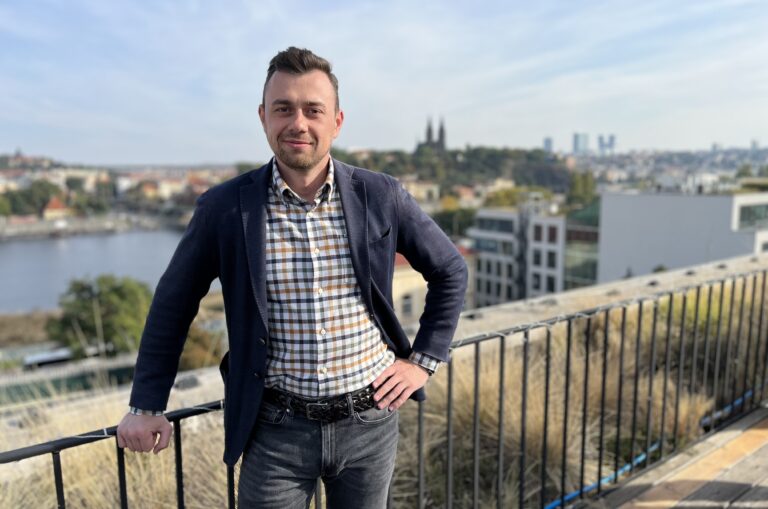
The most challenging part is dealing with the Czech bureaucratic burden, says Adam Kudrlička
Adam Kudrlička holds the position of Development Manager at Logport, overseeing the initial phase of the development process. This phase includes the initial project analysis, technical and legal due diligence, property relations management, purchase agreements, technical preparation of the project and its consultation with authorities, neighbors, and network administrators. Once the building permit is granted, he gradually hands over the project to the construction site for implementation but remains actively involved until its final approval. We appreciate him taking a moment to answer a few questions.
When you graduated from law school, did you anticipate that your career would lead to real estate development? What influenced your decision?
During my studies, I explored various legal professions, from student positions in law firms to government administration and legal support for a political party. However, I knew I didn’t want to pursue any of these directions. My initial steps were partly serendipitous when I met David Vais through a college friend. At the time, David was launching the industrial team at JLL. We got along well, and after some time in a corporate advisory role, we decided it was time to start our own projects.
What does a Business Developer’s daily agenda at Logport look like?
It’s a very diverse agenda, which is what I also enjoy about my job. It includes everything from sourcing new land or acquisition opportunities, preliminary studies and coordinating the preparation of project documentation, to securing property relations and infrastructure through the subsequent full permitting process. After construction, I handle the final approval process with colleagues. Additionally, we recently launched a new public transport line in collaboration with the local community for our project in Jinočany, so the scope of work truly is quite varied.
Your role oversees the construction process from the very beginning to the final implementation documentation. What, in your opinion, is the most challenging aspect?
The most challenging part is dealing with the Czech bureaucratic burden. It is no coincidence that according to the “Doing Business” rankings, we are among the forty worst countries when it comes to the length and complexity of building permitting processes. The authorities themselves often do not even know what they should request from us, or they ask for something that another authority considers unnecessary. On top of that, you face relatively long deadlines, which are often not even respected due to the overwhelmed state of the authorities. But I do not mean to just complain, there are also exceptions where the communication with authorities is sound, and the process proceeds as it should according to the law.
You brought Logport Prague West to life in just three years, which seems like an incredibly fast process. How did you manage it?
It’s all thanks to the dedication of every team member at Logport, as we all pushed the project forward. But apart from that, it certainly helped that the project itself is, in my opinion, genuinely good. Even though the commercial halls represent purely functional architecture, we have managed to design the buildings to a high standard. We also pay significant attention to landscaping and overall integration of the area into the environment, including connections to infrastructure, whether it’s the cycle paths or the public transport network. Our projects also routinely include solar panels, grey water use and electric vehicle charging. I believe that if the project is of high quality, it can attract broad support and it makes the entire process run more smoothly.
What other future challenges do you have in store for Logport in the coming years?
In terms of building permits, we expect the new building act to take effect next year. Personally, I have mixed feelings about it. On one hand, I welcome the new regulation as I can identify with its main principles, and thanks to the digitization of the process, the entire permitting procedure should truly become more efficient and faster. On the other hand, I sense that the introduction of new IT systems has not even begun, and the officials themselves have very little information about the future functioning of the system. Therefore, I have some concerns about the digitization of the process.
Your job is demanding, how do you relax?
I enjoy going to a restaurant for a nice meal or preparing one myself. Traveling is also a great way to relax, and I manage to clear my mind while cycling or working out in the gym.


